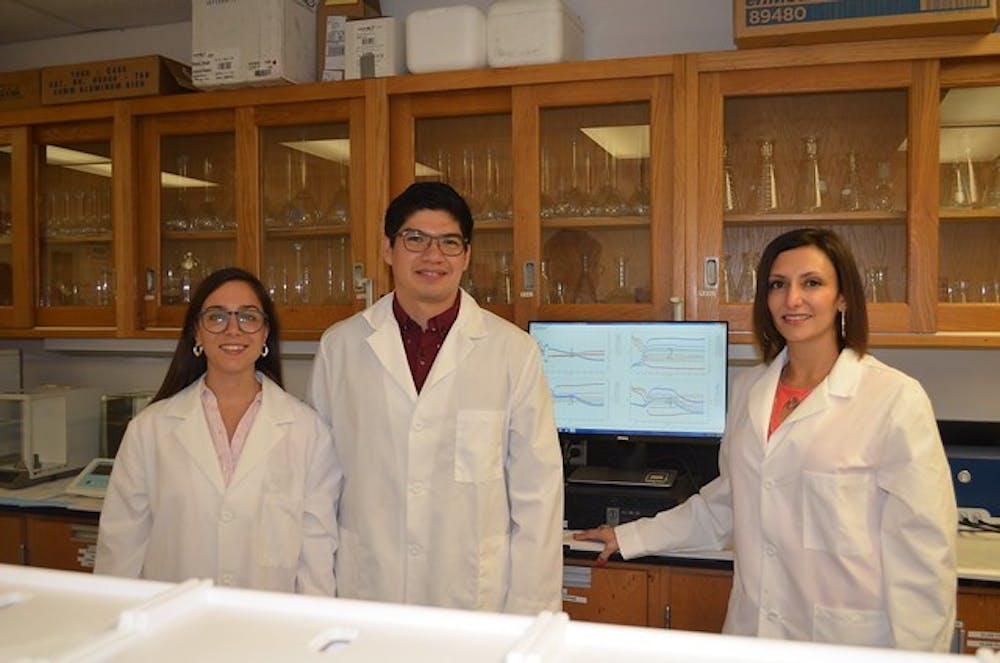AUBURN, Ala. - Maria Soledad Peresin, assistant professor of forest biomaterials in the Auburn University School of Forestry and Wildlife Sciences, and two of her doctoral students will serve on committees for the International Conference on Nanotechnology for Renewable Materials this week in Chiba, Japan.
“This event is a great opportunity to get maximum exposure to innovations related to the utilization of bio-based materials, combined with nanotechnology to advance science on sustainable renewable materials,” Peresin said. “These areas are very relevant to Auburn’s undergraduate degree program, Sustainable Biomaterials and Packaging.”
The conference is an annual event with professionals and students from around the world. Attendees are members of the Nanotechnology Division of the Technical Association of the Pulp and Paper Industry, or TAPPI Nano.
Peresin is serving as co-chair of the conference's scientific committee, and the doctoral students, Diego Gomez Maldonado and Maria Celeste Iglesias, are serving as co-vice chairs of the TAPPI Nano Division's student committee, which Peresin said is vital to the organization.
“The mission of the committee is to provide a forum for students to develop a global network, connecting students and young professionals to academia and industry,” she said. “The forum facilitates knowledge exchange and provides useful tools, advice and encouragement so that students pursue careers that advance the use of renewable and sustainable nanomaterials.”
Iglesias did not participate in the 2018 event, but she looks forward to connecting with international peers. She said student committee members in the U.S. regularly meet to discuss the conference.
“When I received an email invitation to participate on this year’s conference organization with the student committee, I immediately said yes,” Iglesias said. “For me, it’s really nice because you start getting in touch with these people. You know them and you can work with them. Students do not only go to listen. They are very involved.”
Renewable nanomaterials are receiving an increased amount of attention because they are recyclable, have low production costs and appear to have few safety or environmental problems. TAPPI Nano reports that research shows the unique properties of nanomaterials can enhance the performance of consumer products and applications when combined with other materials.
“The involvement of Dr. Peresin and her students with TAPPI Nano increases the visibility of their work with sustainable, added-value products while enhancing Auburn University’s international network, extended opportunities for collaboration and access to a variety of key stakeholders to advance the program,” said Janaki Alavalapati, dean of the School of Forestry and Wildlife Sciences.







